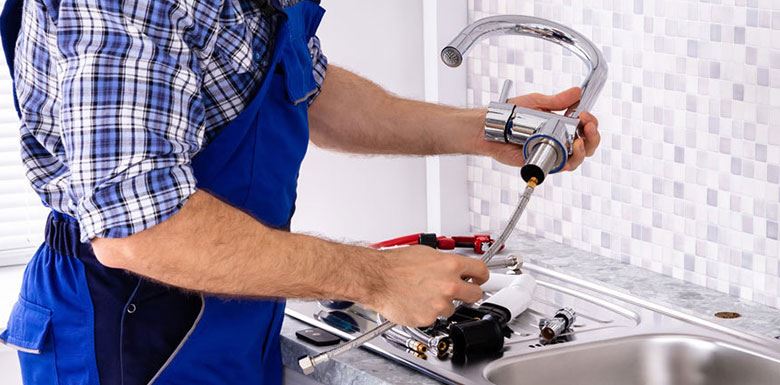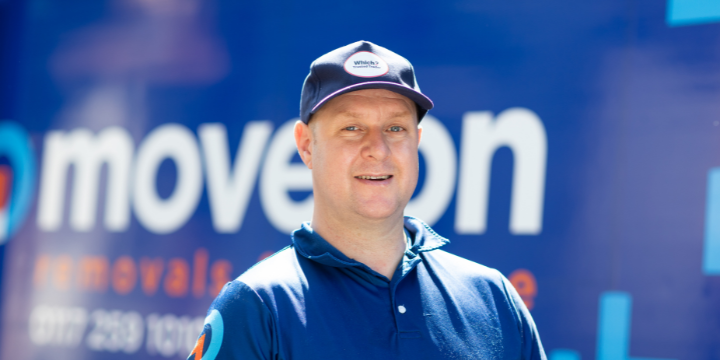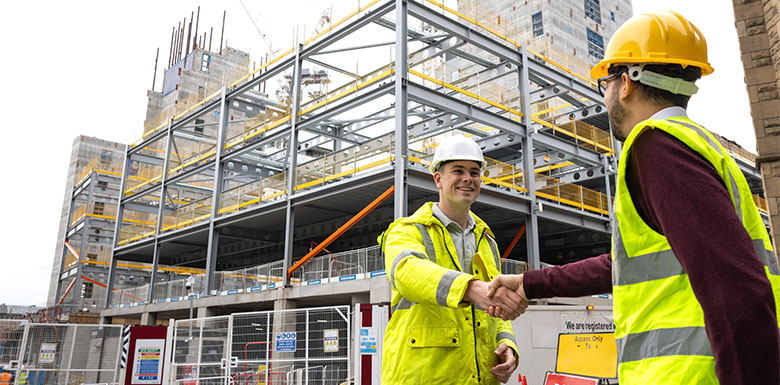How to add to your skills as a plumber
 In this article
In this article
Whether there’s a water leak or a dishwasher that needs installing, as a plumber you provide essential services to customers to help them fix a problem or get things working in their home or business. They rely on you to do the job to a high standard to keep them and their property safe, as well as avoid problems in the future.
By adding the skills you need to become a heating engineer to your existing ones, the types of job you’ll be able to do and your earning potential will grow. You’ll also increase your customer base. This involves getting the necessary qualifications to work on heating and become Gas Safe registered if you want to work on gas, which is required by law.
Sadly in 2022 we witnessed a number of gas explosions in domestic dwellings, emphasising the need for absolute safety when working on natural gas installations and why educating and training installers to the highest standards of gas safety matters is paramount.
By bringing the industry together and highlighting the importance of hiring qualified heating engineers, we are helping to keep the nation safe. It is important to continue to spread the message of gas safety so that customers will be protected from life-threatening hazards such as carbon monoxide poisoning by learning how to make sure their gas appliances are safe, that they use them safely and can identify warning signs.
Find out exactly what a heating engineer does and how to get qualified to work on gas to keep your customers safe below.
What’s the difference between a plumber and a heating engineer?
Plumbers work on anything to do with water but not on heating systems. Their tasks could include dealing with blocked or leaking pipes, fixing dripping taps, installing appliances such as washing machines and dishwashers, installing and fixing bathrooms suites and toilets or fixing and maintaining drainage and sewage systems.
There are a wide range of jobs you can work on as a plumber but it’s not a requirement to have any specific qualifications to be one. You may still be highly skilled though, learning on the job and honing your skills over many years.
Heating engineers work on heating systems, which involve gas appliances or renewable heating systems such as air or ground source heat pumps. They can install central heating, install, fix and service boilers, lay piping, and install and repair radiators, thermostats and hot water systems.
To be a gas heating engineer and become Gas Safe registered you need an industry qualification and to prove you are competent in working with gas. Unlike plumbing, it’s a regulated profession.
To work on renewable heating systems, you can become MCS (Microgeneration Certification Scheme) accredited to show you’re a reliable installer but this isn’t compulsory.
How to train to become a gas heating engineer
To get the necessary qualifications and evidence of competence, you need to complete an industry-recognised training programme. You can get a list of these on the EU Skills website.
The right training for you will depend on what qualifications and experience you already have and how quickly you want to get qualified – if you already have plumbing qualifications and/or experience it could take as little as 10 weeks on an evening course.
Courses cover a wide range of topics, including the basics of heating systems and their controls, how gas appliances work, the legislation that applies to working with gas, pipework requirements, ventilation and ensuring gas safety.
You can become qualified in different areas of gas work. There are core qualifications you need to become Gas Safe registered but you may also choose to get additional ones. There are categories for working in people’s homes, which include working on boilers, water heaters, pipework and cookers, as well as for commercial work. Your Gas Safe ID card shows the types of work you’re qualified to do.
Applying for Gas Safe registration
Eligibility to register with Gas Safe requires that you:
- Complete Accredited Certification Scheme (ACS) training & assessment
- Complete an on-site portfolio of gas work
- Obtain a core domestic gas safety (CCN1) qualification
Once you’ve got your qualifications and evidence of gas safety competence from your training programme you can apply to become Gas Safe registered. Your evidence of competence is sent directly to Gas Safe Register by the body that awarded you your qualification electronically. If successful, you’ll then get your Gas Safe ID.
You get probationary registration for three months, during which you have to prove that you are competent while you work. You need to provide evidence of all the gas work you do to Gas Safe Register. It will then inspect your work and if it’s found to have been done to a satisfactory standard, you’ll pass your probation. Your probation period may be extended if it’s not and you’ll be supported to complete it.
You’ll need to renew your registration every 12 months from the date you registered.
Tips for working as a heating engineer
To boost your business, consider joining the loyalty or trained installer scheme of a boiler brand, such as Worcester Bosch or Viessman, to become an accredited installer for it. The more of its boilers you install the more benefits you get, including having potential customers referred to you through its website.
It can be hard to compete on price with national services like BOXT, which let customers buy a boiler and book installation online. Instead, focus on demonstrating the benefits of using a local trader by offering great customer service, being quick to respond to phone calls and messages, and providing clear and detailed quotes and pricing to give customers confidence in the services you provide. These benefits, along with the personal touch, matter more to some people than price.
If you’re installing boilers, also consider whether to offer boiler finance to your customers to help them spread the cost. You can do this by becoming an ‘introducer appointed representative’ of a boiler finance provider.





